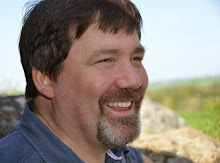Many churches and Christian organisations have, over recent years, rediscovered their God-given mandate to serve and bring good news to the economically disadvantaged, both in their locality and further field.
Thankfully, the idea that such acts are a distraction from the gospel is now rarely heard in Christian circles, as local churches support night shelters, drug rehabilitation projects, food programmes, education support and a myriad of other good works which seek to demonstrate the presence of the Kingdom of God through words and actions.
Welcome though these developments are, they are insufficient to either address the needs of those who are disadvantaged or to fully express the nature of the rule of God in the earth.
The same Lord who was anointed with the Spirit to "preach good news to the poor" was also mandated to bring a rather different message to the rich.
The materially wealthy, according to the gospel accounts, will find it "hard" to enter the kingdom of God, are sent away empty by God, and are to be overlooked by Jesus' disciples when they organise social events.
If that were not bad enough, the Son of God explicitly pronounces judgment upon the wealthy: not only does he pronounce the poor as "blessed", but, in Luke's account of the Sermon on the Mount, he proclaims "woe" to the rich - this term being drawn directly from the writings of the Prophets when they announced God's judgment on individuals, groups or nations.
A church pastor recently shared his concern in discovering that two adjacent neighbourhoods in his city, both of which contain church members, had significantly differing rates of average life expectancy. Those living in the poorer area were likely to die nine years earlier than those in the wealthy neighbourhood next door.
It is questionable how far this gap can be addressed by only meeting the needs and empowering those at the bottom of the economic scale, without also addressing the income and consumption levels of those at the top.
The gospel, it seems to me, calls us to focus on both.
Thankfully, the idea that such acts are a distraction from the gospel is now rarely heard in Christian circles, as local churches support night shelters, drug rehabilitation projects, food programmes, education support and a myriad of other good works which seek to demonstrate the presence of the Kingdom of God through words and actions.
Welcome though these developments are, they are insufficient to either address the needs of those who are disadvantaged or to fully express the nature of the rule of God in the earth.
The same Lord who was anointed with the Spirit to "preach good news to the poor" was also mandated to bring a rather different message to the rich.
The materially wealthy, according to the gospel accounts, will find it "hard" to enter the kingdom of God, are sent away empty by God, and are to be overlooked by Jesus' disciples when they organise social events.
If that were not bad enough, the Son of God explicitly pronounces judgment upon the wealthy: not only does he pronounce the poor as "blessed", but, in Luke's account of the Sermon on the Mount, he proclaims "woe" to the rich - this term being drawn directly from the writings of the Prophets when they announced God's judgment on individuals, groups or nations.
A church pastor recently shared his concern in discovering that two adjacent neighbourhoods in his city, both of which contain church members, had significantly differing rates of average life expectancy. Those living in the poorer area were likely to die nine years earlier than those in the wealthy neighbourhood next door.
It is questionable how far this gap can be addressed by only meeting the needs and empowering those at the bottom of the economic scale, without also addressing the income and consumption levels of those at the top.
The gospel, it seems to me, calls us to focus on both.




No comments:
Post a Comment